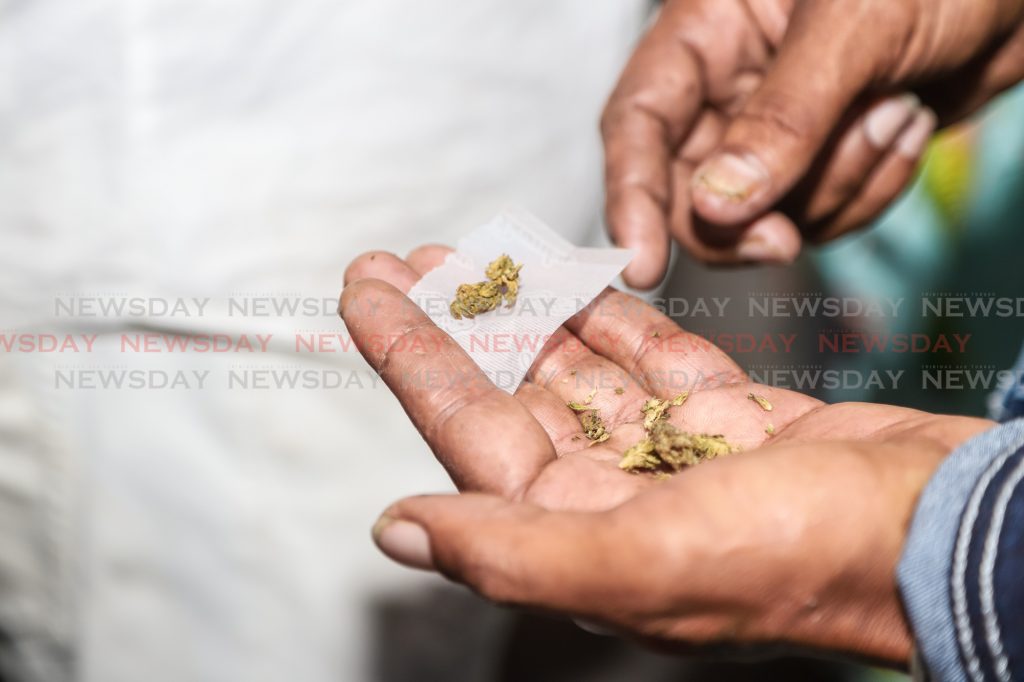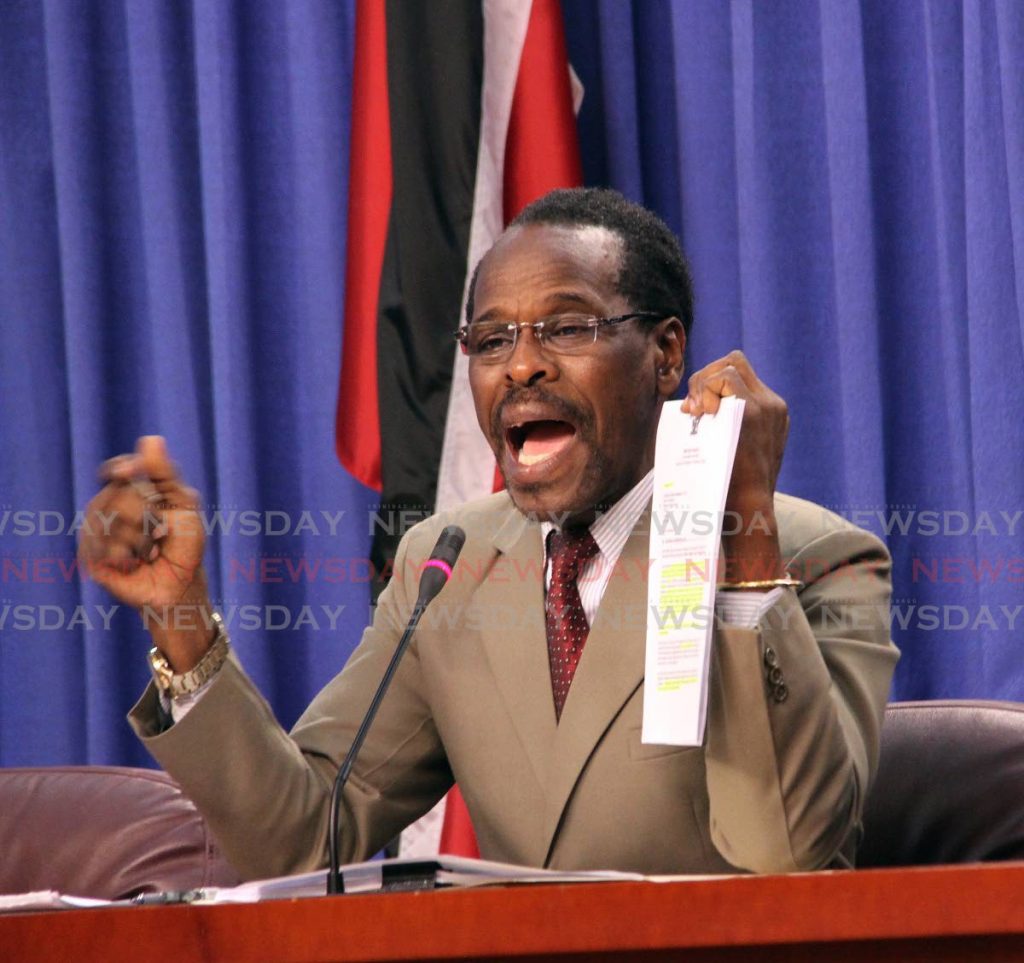Hinds: Primary school pupils smoking weed

SOME pupils use cannabis even before reaching secondary school, lamented Fitzgerald Hinds – chairman of the Joint Select Committee (JSC) on National Security at its virtual sitting on Wednesday.
The committee was continuing its inquiry into strategies to combat organised crime in TT, examining the Ministries of Education and Social Development and Family Services (MSDFS) on steps to reduce the gang recruitment of vulnerable youth.
Hinds said he learnt of several pupils who were smoking cannabis at primary school.
"I can tell you this. I have had three examples of primary school students who have admitted to me and others that they were using marijuana in primary school!”
This came after Newsday put the question to the Ministry of Education on whether any was done to determine whether drug use led youths into gangs, and whether enough drug-awareness programmes in schools.

“What is your reaction to the question?" Hinds asked.
"Because they have to leave lunchtime and go down the road to get the joint. And they go in the wrong places to get it.”
Acting permanent secretary Jennifer Lutchman replied, "I have to admit no study has been done at the moment."
Hinds asked if the ministries were working with NGOs to help pupils, to which Lutchman replied yes.
He shared examples of unresolved issues he knew of, including three schools where pupils had performed below the national average for ten years, and another school which offered just eight pupils to write the SEA exam with seven of them scoring below 30 per cent.
In his third example, he lamented teacher absenteeism.
Earlier JSC member Keith Scotland asked the MSDFS what programmes they offer to reduce the lure of gangs.
MSDFS permanent secretary Jacinta Bailey-Sobers replied, "We don't have specific programmes."
She said the ministry offers food support so the child's family will be supported. It also offered parenting programmes plus developmental programmes to capture what was happening in the particular household. A psycho-social unit will be able to tell if the child was vulnerable to joining a gang, she said.
Scotland, in reply, argued this was not the time for indirect approaches but rather a direct approach. He urged the authorities use NGOs such as Vision on Mission.
He asked what was being done to strengthen the family as a crime-prevention measure, recalling his own mother putting him in place when she caught him liming on the block as a rebellious 16 year old. Scotland later asked what was being done in the school curriculum to get pupils to avoid gangs. Ministry of Education chief education officer Lisa Henry-Daniel replied that the Health and Family Life Education (HFLE) programme dealt with the whole child to develop resilience.
JSC member Dr Roodal Moonilal complained of a lack of data on the number and description of at-risk children, plus a shortage of school staff in County Victoria. He urged more extra-curricular activities in culture, arts, debating, drama and sport, to absorb the youthful energy of pupils.
Hinds put forward Newsday's query as to how one guidance counsellor could serve three secondary schools, each with 750 pupils, and likewise for one educational psychologist.
Henry-Daniel replied that the ministry works under the constraints of what it is given.
"It's not a best fit, but we try to ensure some sort of coverage."
Earlier, Hinds said he found some of the official’s replies to be glib, brisk and formulated.
He wondered how 256 guidance counsellors and 200 social workers could be enough to serve TT's 800 schools. Henry-David replied that her staff serve from the heart and go the extra mile, and denied her replies were glib.


Comments
"Hinds: Primary school pupils smoking weed"